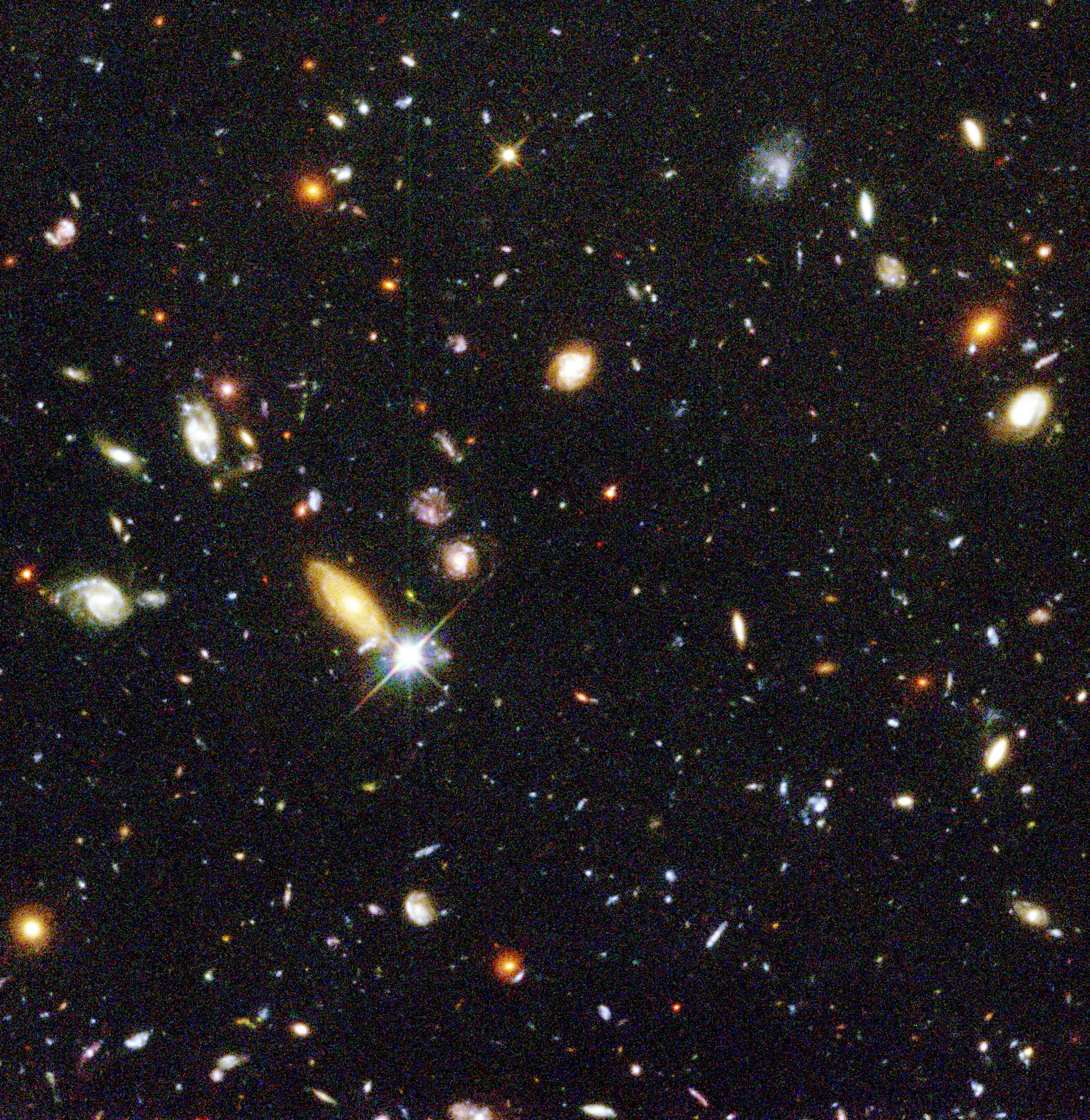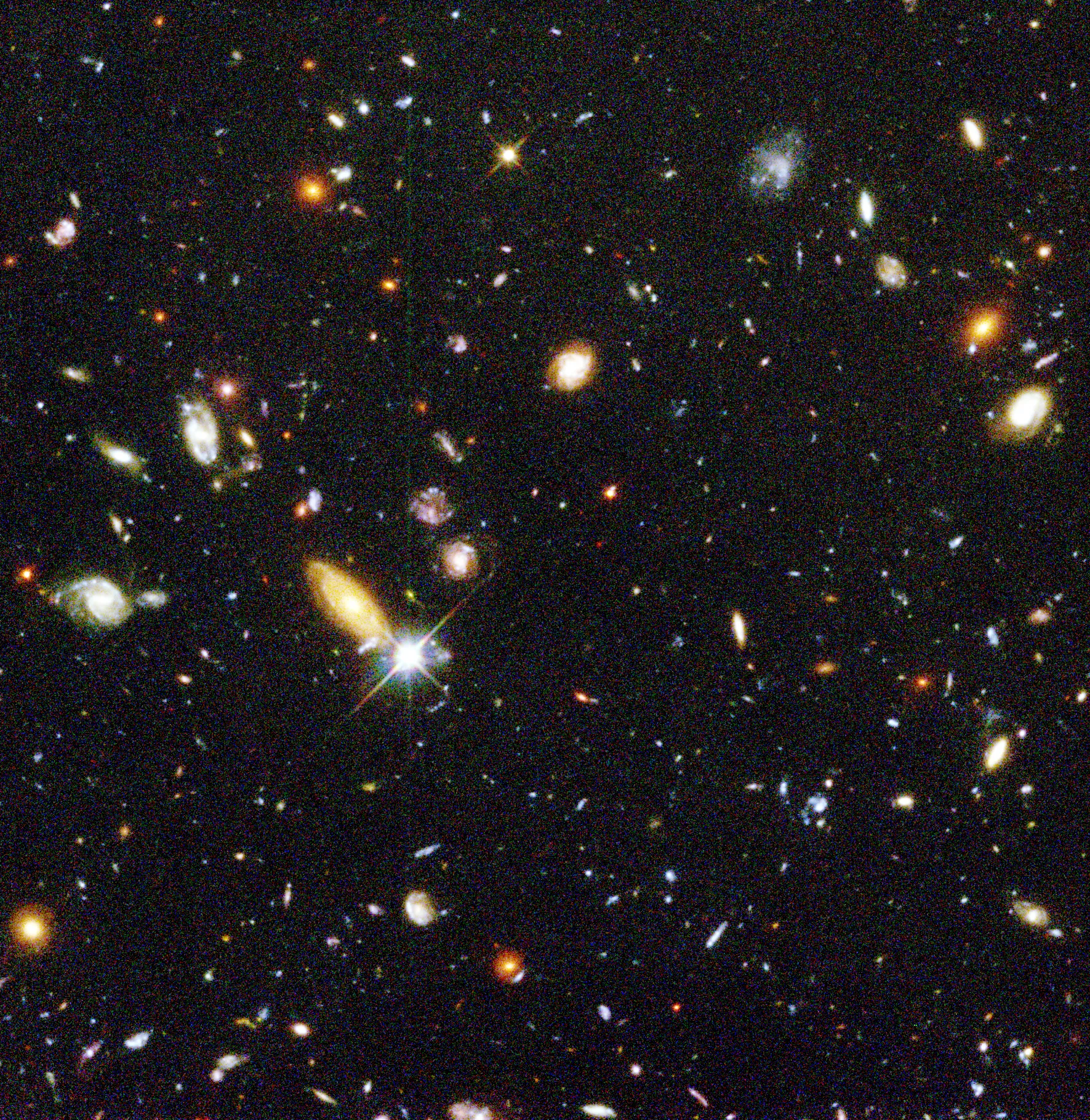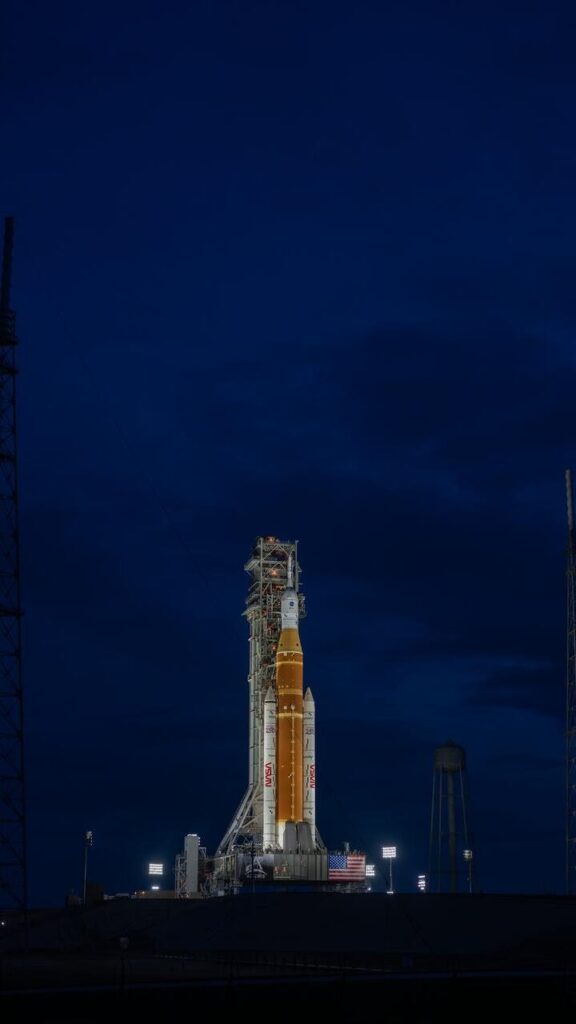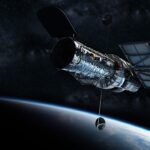
Credit: NASA, Robert Williams, and the Hubble Deep Field Team (STScI)
One hundred years ago, on January 1, 1925, Edwin Hubble forever altered humanity’s view of the cosmos by announcing the discovery of galaxies beyond the Milky Way. Until then, the prevailing belief was that the Milky Way contained all the universe. Hubble’s groundbreaking work challenged this assumption, proving that our galaxy is just one of countless others scattered throughout the vastness of space.
Using the 100-inch Hooker Telescope at Mount Wilson Observatory in California, Hubble observed the Andromeda Nebula, previously thought to be a cloud of gas within the Milky Way. Hubble calculated its distance from Earth by identifying and studying a particular type of star known as a Cepheid variable. The results were astonishing: Andromeda lay well beyond the boundaries of the Milky Way, establishing it as an entirely separate galaxy.
This discovery was the beginning of extragalactic astronomy, fundamentally expanding our understanding of the universe’s scale and structure. Hubble also developed a classification system for galaxies based on their shapes, including spirals, ellipticals, and irregulars. His subsequent observations revealed that galaxies are receding from us, providing the first evidence for the universe’s expansion—a cornerstone of the Big Bang theory.
Hubble’s findings reshaped not only astronomy but also humanity’s place in the cosmos. His work demonstrated that the universe is vastly larger and more dynamic than anyone had imagined, prompting a profound shift in both scientific inquiry and philosophical perspective. Today, Hubble’s legacy endures in the Hubble Space Telescope, a modern marvel that continues to explore the distant reaches of space, honouring the man whose vision redefined our view of the universe.
Written with the help of ChatGPT
WeCanReason 2024 Videos

Wednesday, January 1
You can go to the WeCanReason home page or our YouTube channel to watch the 6th and last video from the event, Existential Psychology, presented by the Keynote Speaker Cara Santa Maria
All videos are available now, free to everyone.
Wait for exciting news about WeCanReason 2025!
Life Without Religion – Online

Thursday, January 2
First Thursday of every month at 7:00 pm MST
Live Without Religion (LWR) is a peer support group for people whose lives have been negatively impacted by religion. Nearly anyone who has left a fundamentalist or high-control religion can tell you that it leaves not only scars but sometimes open wounds. Nothing helps with the healing better than sharing your experience and discussing how to heal with others who have had a similar experience. That mutual support is what we find in LWR meetings. If you want to learn more about LWR, contact Lois at loislwr@gmail.com.
Book Club 2025 – Book Selection

Ends on Saturday, January 4
Voting for the monthly books for 2025 is now open and you can vote for your preferred books for the Club to read and discuss. This is NOT a meeting on Jan 4 – this is just an invitation for you to participate in the book selection.
We are using a Google Sheet to show the list of 50 proposed books and the top 12 will be used for the year. You can vote for any number of books but we suggest 15-20 books.
How to vote? Go to our Meetup page to get all the details.
Book Club

Thursday, January 9
Second Thursday of every month at 7:00 pm MST
This month, the Book Club will be discussing the book The True Believer: Thoughts on the Nature of Mass Movements by Eric Hoffer.
Head over to our Meetup page to register and get the Zoom link.
Coffee Chat Online

Monday, January 13
Second Monday of every month at 1:00 pm MST
Our Coffee Chat is an enjoyable, unstructured, afternoon conversation. Anyone can introduce an idea or ask a question and the group will jump in and discuss it. You never know where the conversation will go but it is always interesting and sometimes even educational. Join us and add your two-cents-worth.
Go to our Meetup page to register and get the Zoom link.
WeCanReason Webinar – Recording

Wednesday, January 15 at 2:00 pm MST
Ayahuasca, Psychedelics and Critical Thinking with Le Pharmachien
As the world witnesses a surge in interest in psychedelics, Ayahuasca has emerged as a cultural phenomenon, drawing thousands from around the globe to Peru in search of spiritual and therapeutic breakthroughs. Unfortunately, the field of psychedelics has been steeped in mysticism and pseudoscience for decades, complicating efforts to assess their true benefits and risks. This conference by Olivier Bernard (Le Pharmachien) delves into the rise of Ayahuasca tourism and the broader psychedelic renaissance, inviting participants to explore the promises and pitfalls of these substances through a lens of skepticism, critical thinking and science-based medicine.
This event will be recorded with an audience on January 15 and broadcast on January 22. You can be present at both, but only on January 15 there will be a Q&A.
Head over to our Meetup Page, to register and get the Zoom link.
Skeptics in the Pub

Friday, January 17
Third Friday of each month at 6:30 pm MST at Loco Lou’s Grill & Bar.
Come to the pub, meet like-minded people and have thought-provoking discussions, along with a drink and some food. You can register on our Meetup Page.
You can find us at Loco Lou’s Grill & Bar, 1324 16 Avenue NW
Life Without Religion – Online

Tuesday, January 21
Third Tuesday of every month at 7:00 pm MST
Live Without Religion (LWR) is a peer support group for people whose lives have been negatively impacted by religion. Nearly anyone who has left a fundamentalist or high-control religion can tell you that it leaves not only scars but sometimes open wounds. Nothing helps with the healing better than sharing your experience and discussing how to heal with others who have had a similar experience. That mutual support is what we find in LWR meetings. If you want to learn more about LWR, contact Lois at loislwr@gmail.com.
WeCanReason Webinar – Broadcast

Wednesday, January 22 at 7:00 pm MST
Ayahuasca, Psychedelics and Critical Thinking with Le Pharmachien
As the world witnesses a surge in interest in psychedelics, Ayahuasca has emerged as a cultural phenomenon, drawing thousands from around the globe to Peru in search of spiritual and therapeutic breakthroughs. Unfortunately, the field of psychedelics has been steeped in mysticism and pseudoscience for decades, complicating efforts to assess their true benefits and risks. This conference by Olivier Bernard (Le Pharmachien) delves into the rise of Ayahuasca tourism and the broader psychedelic renaissance, inviting participants to explore the promises and pitfalls of these substances through a lens of skepticism, critical thinking and science-based medicine.
This event will be recorded with an audience on January 15 and broadcast on January 22. You can be present at both, but only on January 15 there will be a Q&A.
Head over to our Meetup Page, to register and get the Zoom link.
Monthly Board Meeting

Thursday, January 23
Fourth Thursday of the month at 6:00 pm MST
The Board of RMA meets on the 4th Thursday of each month. Meetings are open to all but only Board members can vote. The location of this month’s meeting is yet to be determined. Check out our Meetup page later in the month for details.
Movie Night

Monday, January 27
Fourth Monday of every month at 7:00 pm MST
This month’s movie was not selected yet. Head over to our Meetup Page, to register, get updates and the Zoom link.
All details of our events can be found on our Meetup Page at https://www.meetup.com/rockymountainatheists/events/.










